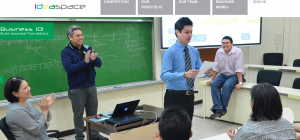Breaking
Government addressing educators’ concerns on implementation of K to 12 Program
MANILA — The Department of Labor and Employment (DOLE) is actively engaging educators’ unions to address concerns on the possible layoff of college professors as a result of the implementation of the K to 12 Program, the Palace said on Friday.
There have been discussions on the issue, even before the implementation of the K to12 Program, Deputy Presidential Spokesperson Abigail Valte told reporters during a press briefing in Malacanang.
“Even in the drafting of the Implementing Rules and Regulations (IRR) for K to 12, several (college) faculty unions were already consulted,” Valte said.
News reports said college professors held a forum on Thursday to air their concern that at least 85,000 of them are in danger of losing their jobs in 2016 due to a possible lull in enrollment because of the K to 12 Program, as students will enroll in Grade 11 instead of entering their freshman year in college.
Valte said the DOLE, Commission on Higher Education (CHED) and Department of Education (DepEd) have held multi-sectoral consultations, which were attended by representatives of the University of Sto. Tomas (UST) Faculty Union, Far Eastern University (FEU), Mapua Institute of Technology (MIT), and University of the East (UE), among others.
The DOLE has also invited the unions of various private colleges and universities for consultations, Valte said.
She said many colleges and universities are exploring the possibility of not laying off their professors.
“Meron na sa kanilang nag-i-explore ng ganitong possibility. On the part of DepED, nagfo-formulate sila ng guidelines kung papaano pupwedeng magturo ang mga teachers, professors ng Grade 11 at Grade 12,” she said.
The K to 12 Program covers Kindergarten and 12 years of basic education–six years of primary education, four years of Junior High School, and two years of Senior High School.
The program aims to provide students sufficient time to master concepts and skills and develop into lifelong learners, as well as to prepare high school graduates for tertiary education, middle-level skills development, employment, and entrepreneurship.






















